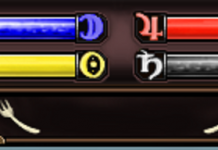The prophet Isaiah foretold it and the angels announced His birth triumphantly to all the shepherds in the fields, “Good Christian men rejoice with heart and soul and voice, now ye need not fear the grave. Peace! Peace! Jesus Christ was born to save.” The very meaning of the name Jesus means Saved or Savior.
“For God did not send his Son into the world to condemn the world, but to save the world through him.” John 3:17 (NIV)
“And everyone who calls on the name of the Lord will be saved.” Acts 2:21 (NIV)
“For God so loved the world that he gave his one and only Son, that whoever believes in him shall not perish but have eternal life.” John 3:16 (NIV)
This is what Christmas is all about, salvation, the savior, Jesus, King of Kings, Lord of Lords.
“Rejoice in the Lord always. I will say it again: Rejoice!” Philippians 4:4 (NIV)
Good Christian Men Rejoice! The original Latin title of this song is “In Dulci Jubilo” meaning “in sweet shouting”.
“Salvation is found in no one else, for there is no other name under heaven given to mankind by which we must be saved.” Acts 4:12 (NIV)
As the Christmas season approaches, rejoice in the true meaning of Christmas. Keep Christ in Christmas. Rejoice in the gift of love from God, the sweet gift of salvation, our Lord and Savior, Jesus
“An angel of the Lord appeared to them, and the glory of the Lord shone around them, and they were terrified. 10 But the angel said to them, “Do not be afraid. I bring you good news that will cause great joy for all the people. 11Today in the town of David a Savior has been born to you; he is the Messiah, the Lord.” Luke 2:9-11 (NIV)
www.everydaychristian.com
St. Athanasius’s “On the Incarnation” is a must read for every Christian, Orthodox or not. (A free public copy is provided at the end of this post). Don’t take my word for it; C.S. Lewis, famous author and writer of the Chronicles of Narnia series (among many other works), called it “a masterpiece.”
St. Athanasius answers fundamental questions in the work, including:
- Why couldn’t Adam and Eve have just repented?
- What does it mean that they would “surely die”?
- Why was Christ born?
- Why couldn’t Christ have just saved us by appearing in spirit, without becoming incarnate?
Here is a summary of what the 20th Archbishop of Alexandria had to say in the first couple of chapters:
QUICK FACTS
First, note that St. Athanasius wrote “On the Incarnation” before he was a priest or a deacon, while he was just a layman, about 7 years before accompanying Pope Alexandria of Alexandria to the council of Nicea in AD 325, where as a deacon he defended the Orthodox faith against Arius and his followers.
While Arius was tall and lean, St. Athanasius was short, dwarfish, and had a slight stoop. Arius had long tangled hair; St. Athanasius had a short beard spread out on both sides. As opposed to Arius’s pale face, Gregory the Theologian says that St. Athanasius had an “angelic beauty of face and expression.” Arius was about 69 at the time of the council; St. Athanasius was in his late 20s.
CHAPTER ONE: Fall of Man – Brief Summary
Mankind was created to live eternally in the Paradise of Delight, and only one rule was to be followed: do not eat the tree of knowledge of good and evil. Consequence?
You shall surely die.
Humanity lost immortality, and the tree of life became inaccessible, as did Paradise. Every time someone died before Christ, they went to Hades: “through one man sin entered the world, and death through sin, and thus death spread to all men” (Rom. 5:12). That is what is meant by Adam and Eve “surely” dying.
CHAPTER TWO:
The Divine Dilemma
St. Athanasius teaches us that the reason Christ was born, suffered, died, and resurrected, was to resolve a “divine dilemma” created by the condition of mankind.
- Penalty promised: you shall surely die.
- God “cannot … lie” (Titus 1:2).
- Dilemma: God cannot go back on His word, but if God did nothing, it would mean God is not good, and there was no use in Him creating us.
Why couldn’t Adam and Eve just repent?
Why did Christ have to come to us? Why couldn’t Adam and Eve just have repented? It’s a fair question, and St. Athanasius deals with it directly. He says that repentance is just a request for forgiveness of a sin, but what Adam and Eve did was not just a sin, because their actions carried with it consequences that affected the nature of all humanity—corruption and death.
God needed to “recreate” our nature, which was first fashioned on Christ, and so Christ had to fashion us after His image again.
Who, save the Word of God Himself, Who also in the beginning had made all things out of nothing? His part it was, and His alone, both to bring again the corruptible to incorruption and to maintain for the Father His consistency of character with all.
For He alone, being Word of the Father and above all, was in consequence both able to recreate all, and worthy to suffer on behalf of all and to be an ambassador for all with the Father.
Why couldn’t Christ just appear in spirit?
St. Athanasius asks another very good question: why couldn’t Christ just have come in His spiritual form and save us? Why did he have to go through all the hassle of birth, childhood, etc? His answer: Christ, being immortal, could not die, so “He assumed a body capable of death” so that He could die and be a “sufficient exchange for all.”
Substitutionary Atonement – “sufficient exchange for all” offered to the Father, not as a ransom to Satan
There has been an interesting development among some “Christian” denominations on this basic theological concept pronounced by St. Athanasius of Christ substituting Himself for us to offer Himself to the Father. Some saw the word “ransom” as used by St. Paul (1 Timothy 2:6) and thought of its meaning: the practice of holding a prisoner to extort something (usually money) to secure their release. People started to erroneously think of Satan as the one holding us captive in Hades, and that Christ had to offer Himself as a ransom to the devil, to free us. St. Athanasius makes clear what the Bible also says about this (cf. 1 Peter 3:18):
Christ exchanged His body for ours, took upon Himself death instead of us. Thus, taking a body like our own, because all our bodies were liable to the corruption of death, He surrendered His body to death instead of all, and offered it to the Father.
JUSTIFICATION THROUGH CHRIST ALONE, BUT WE CAN FALL SHORT OF GRACE
Moving beyond what St. Athanasius wrote, I want us to all realize that the common attack on Orthodoxy, that we focus on “works” as a means to salvation, is misplaced. We could not offer atonement for ourselves, but needed Christ, who “suffered once for sins, the just for the unjust, that He might bring us to God” (1 Peter 3:18), to be “the justifier of the one who has faith in Jesus” (Romans 3:26). Having cloaked us with His righteousness and paying our dues, we now have “boldness and access with confidence through faith in Him” (Ephesians 3:12) “to enter the Holiest by the blood of Jesus” (Hebrews 10:19). This was a “free gift” of God’s graciousness (Romans 5:18).
However, the Bible teaches us that we can “turn the grace of our God into lewdness and deny the only Lord God and our Lord Jesus Christ” (Jude 4), and so we must “pursue … holiness, without which no one will see the Lord: looking carefully lest anyone fall short of the grace of God” (Hebrews 12:14–15). St. Paul warns Christians that, “If we sin willfully after we have received the knowledge of the truth, there no longer remains a sacrifice for sins , but a certain fearful expectation of judgment and fiery indignation which will devour the adversaries” (Hebrews 12:26).
St. Clement of Rome, the first archbishop in Rome (c. AD 92–99) after the apostle who established Christianity there, says the same in his letter to the Corinthians (which almost made it into our Bibles by the way!). After discussing our justification through Christ, he asks:
What shall we do, then, brethren? Shall we become slothful in well-doing, and cease from the practice of love? God forbid that any such course should be followed by us! But rather let us hasten with all energy and readiness of mind to perform every good work.
May the grace and peace of the All-Holy Trinity be with you all. Amen.
______________________
FURTHER READING:
“On the Incarnation,” by St. Athanasius (click here to download).
I highly recommend you get a hard copy of the book. The one I prefer is translated by the Very Rev. Dr. John Behr, present dean of the St. Validimir Theological Seminary, and can be found here.
______________________
SOURCES:
- St. Athanasius, “On the Incarnation.”
- “From Jerusalem to Nicea” by Philip Stafford Moxom
- Clement of Rome The First Epistle to the Corinthians XXXII–XXXIII
johnbelovedhabib.wordpress.com


St. Athanasius’s “On the Incarnation” is a must read for every Christian, Orthodox or not. (A free public copy is provided at the end of this post). Don’t take my word for it; C.S. Lewis, famous author and writer of the Chronicles of Narnia series (among many other works), called it “a masterpiece.”
St. Athanasius answers fundamental questions in the work, including:
- Why couldn’t Adam and Eve have just repented?
- What does it mean that they would “surely die”?
- Why was Christ born?
- Why couldn’t Christ have just saved us by appearing in spirit, without becoming incarnate?
Here is a summary of what the 20th Archbishop of Alexandria had to say in the first couple of chapters:
QUICK FACTS
First, note that St. Athanasius wrote “On the Incarnation” before he was a priest or a deacon, while he was just a layman, about 7 years before accompanying Pope Alexandria of Alexandria to the council of Nicea in AD 325, where as a deacon he defended the Orthodox faith against Arius and his followers.
While Arius was tall and lean, St. Athanasius was short, dwarfish, and had a slight stoop. Arius had long tangled hair; St. Athanasius had a short beard spread out on both sides. As opposed to Arius’s pale face, Gregory the Theologian says that St. Athanasius had an “angelic beauty of face and expression.” Arius was about 69 at the time of the council; St. Athanasius was in his late 20s.
CHAPTER ONE: Fall of Man – Brief Summary
Mankind was created to live eternally in the Paradise of Delight, and only one rule was to be followed: do not eat the tree of knowledge of good and evil. Consequence?
You shall surely die.
Humanity lost immortality, and the tree of life became inaccessible, as did Paradise. Every time someone died before Christ, they went to Hades: “through one man sin entered the world, and death through sin, and thus death spread to all men” (Rom. 5:12). That is what is meant by Adam and Eve “surely” dying.
CHAPTER TWO:
The Divine Dilemma
St. Athanasius teaches us that the reason Christ was born, suffered, died, and resurrected, was to resolve a “divine dilemma” created by the condition of mankind.
- Penalty promised: you shall surely die.
- God “cannot … lie” (Titus 1:2).
- Dilemma: God cannot go back on His word, but if God did nothing, it would mean God is not good, and there was no use in Him creating us.
Why couldn’t Adam and Eve just repent?
Why did Christ have to come to us? Why couldn’t Adam and Eve just have repented? It’s a fair question, and St. Athanasius deals with it directly. He says that repentance is just a request for forgiveness of a sin, but what Adam and Eve did was not just a sin, because their actions carried with it consequences that affected the nature of all humanity—corruption and death.
God needed to “recreate” our nature, which was first fashioned on Christ, and so Christ had to fashion us after His image again.
Who, save the Word of God Himself, Who also in the beginning had made all things out of nothing? His part it was, and His alone, both to bring again the corruptible to incorruption and to maintain for the Father His consistency of character with all.
For He alone, being Word of the Father and above all, was in consequence both able to recreate all, and worthy to suffer on behalf of all and to be an ambassador for all with the Father.
Why couldn’t Christ just appear in spirit?
St. Athanasius asks another very good question: why couldn’t Christ just have come in His spiritual form and save us? Why did he have to go through all the hassle of birth, childhood, etc? His answer: Christ, being immortal, could not die, so “He assumed a body capable of death” so that He could die and be a “sufficient exchange for all.”
Substitutionary Atonement – “sufficient exchange for all” offered to the Father, not as a ransom to Satan
There has been an interesting development among some “Christian” denominations on this basic theological concept pronounced by St. Athanasius of Christ substituting Himself for us to offer Himself to the Father. Some saw the word “ransom” as used by St. Paul (1 Timothy 2:6) and thought of its meaning: the practice of holding a prisoner to extort something (usually money) to secure their release. People started to erroneously think of Satan as the one holding us captive in Hades, and that Christ had to offer Himself as a ransom to the devil, to free us. St. Athanasius makes clear what the Bible also says about this (cf. 1 Peter 3:18):
Christ exchanged His body for ours, took upon Himself death instead of us. Thus, taking a body like our own, because all our bodies were liable to the corruption of death, He surrendered His body to death instead of all, and offered it to the Father.
JUSTIFICATION THROUGH CHRIST ALONE, BUT WE CAN FALL SHORT OF GRACE
Moving beyond what St. Athanasius wrote, I want us to all realize that the common attack on Orthodoxy, that we focus on “works” as a means to salvation, is misplaced. We could not offer atonement for ourselves, but needed Christ, who “suffered once for sins, the just for the unjust, that He might bring us to God” (1 Peter 3:18), to be “the justifier of the one who has faith in Jesus” (Romans 3:26). Having cloaked us with His righteousness and paying our dues, we now have “boldness and access with confidence through faith in Him” (Ephesians 3:12) “to enter the Holiest by the blood of Jesus” (Hebrews 10:19). This was a “free gift” of God’s graciousness (Romans 5:18).
However, the Bible teaches us that we can “turn the grace of our God into lewdness and deny the only Lord God and our Lord Jesus Christ” (Jude 4), and so we must “pursue … holiness, without which no one will see the Lord: looking carefully lest anyone fall short of the grace of God” (Hebrews 12:14–15). St. Paul warns Christians that, “If we sin willfully after we have received the knowledge of the truth, there no longer remains a sacrifice for sins , but a certain fearful expectation of judgment and fiery indignation which will devour the adversaries” (Hebrews 12:26).
St. Clement of Rome, the first archbishop in Rome (c. AD 92–99) after the apostle who established Christianity there, says the same in his letter to the Corinthians (which almost made it into our Bibles by the way!). After discussing our justification through Christ, he asks:
What shall we do, then, brethren? Shall we become slothful in well-doing, and cease from the practice of love? God forbid that any such course should be followed by us! But rather let us hasten with all energy and readiness of mind to perform every good work.
May the grace and peace of the All-Holy Trinity be with you all. Amen.
______________________
FURTHER READING:
“On the Incarnation,” by St. Athanasius (click here to download).
I highly recommend you get a hard copy of the book. The one I prefer is translated by the Very Rev. Dr. John Behr, present dean of the St. Validimir Theological Seminary, and can be found here.
______________________
SOURCES:
- St. Athanasius, “On the Incarnation.”
- “From Jerusalem to Nicea” by Philip Stafford Moxom
- Clement of Rome The First Epistle to the Corinthians XXXII–XXXIII
johnbelovedhabib.wordpress.com










